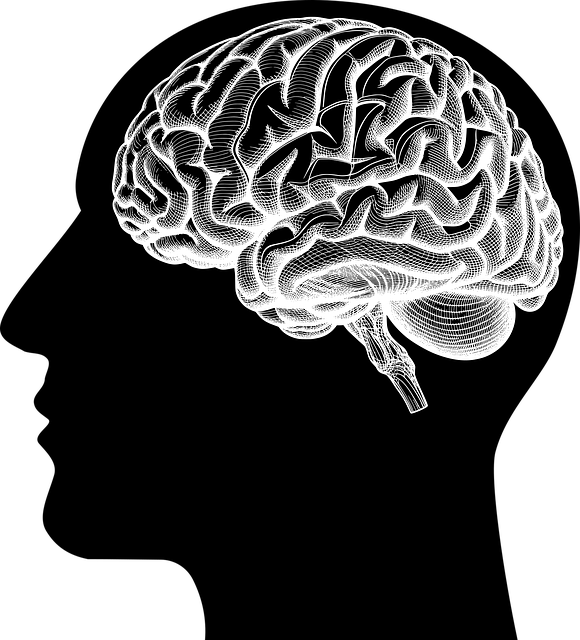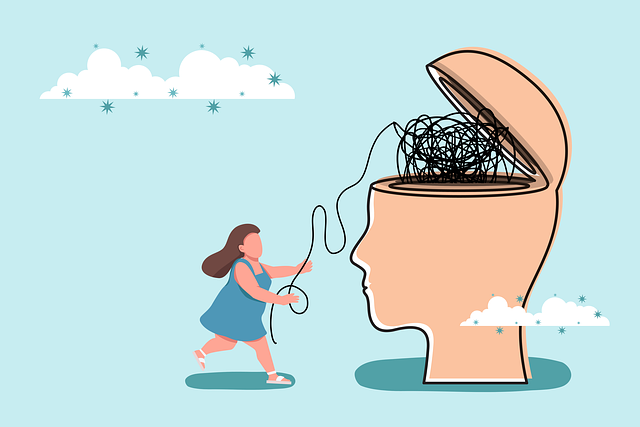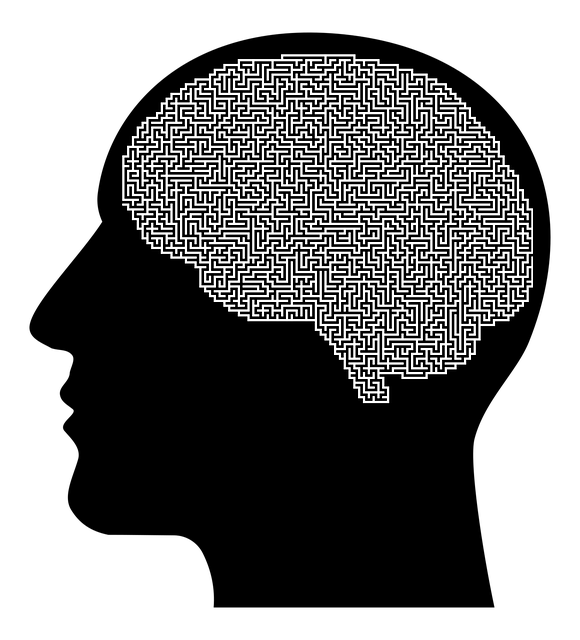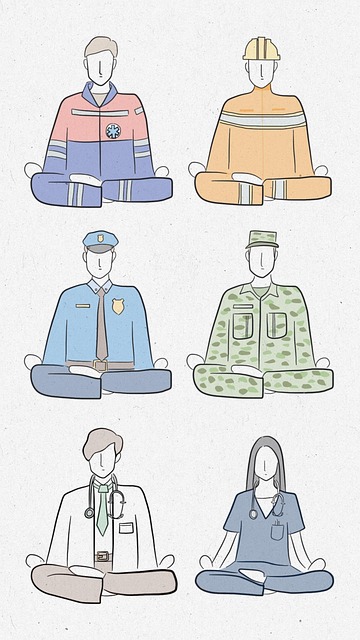Highlands Ranch Codependency Therapy offers a unique, supportive environment through effective group facilitation. Facilitators encourage open communication, active listening, and emotional expression to build understanding and connection among members. By integrating mental health policy knowledge and stress reduction techniques like mindfulness, participants gain tools for self-advocacy, boundary setting, and improved mental wellness. This holistic approach combines cognitive behavioral techniques with peer support, fostering resilience and personal growth in a safe, transformative setting.
In today’s world, mental wellness group facilitation plays a crucial role in supporting individuals navigating complex emotions and relationships. This article explores effective techniques for facilitating supportive group dynamics, drawing insights from the successful implementation of Highlands Ranch Codependency Therapy (HRCT). By understanding group behavior and employing tailored strategies, facilitators can create safe spaces fostering growth and healing. We’ll delve into key techniques and real-world case studies, offering valuable guidance for enhancing mental wellness support through group therapy.
- Understanding Mental Wellness Group Dynamics
- Facilitation Techniques for Effective Support
- Case Studies: Highlands Ranch Codependency Therapy in Action
Understanding Mental Wellness Group Dynamics

Understanding Mental Wellness Group Dynamics is a crucial step in effective group facilitation, especially in settings like Highlands Ranch Codependency Therapy. Groups offer a unique environment where individuals come together to share experiences, gain insights, and support one another. This dynamic is not merely about the sum of its parts; it’s a complex interplay of relationships, emotions, and behaviors that can either foster healing or hinder progress. Facilitators play a vital role in navigating these dynamics by fostering open communication, promoting active listening, and encouraging emotional expression.
Empathy Building Strategies are integral to creating a safe and supportive atmosphere. Crisis Intervention Guidance techniques can help individuals manage intense emotions and navigate challenging situations within the group setting. Moreover, understanding the nuances of group behavior allows facilitators to adapt their approach, ensuring that every member feels heard and respected. By integrating Mental Health Policy Analysis and Advocacy into group discussions, facilitators can also enhance participants’ knowledge about available resources and promote self-advocacy, ultimately contributing to long-term mental wellness.
Facilitation Techniques for Effective Support

Effective group facilitation is key to fostering a supportive environment for individuals seeking mental wellness, particularly those dealing with codependency in Highlands Ranch Codependency Therapy settings. One powerful technique involves promoting open and honest communication strategies among group members. Encouraging active listening, empathetic responses, and safe spaces for sharing personal experiences can enhance connection and understanding within the group. This creates a sense of belonging and empowers individuals to support one another through challenges.
Additionally, incorporating stress reduction methods like mindfulness meditation has proven beneficial. Facilitators can guide sessions that teach participants how to manage stress and anxiety effectively using simple yet powerful techniques. By integrating these practices into group discussions, facilitators not only address the root causes of codependency but also equip members with valuable tools for improving their overall mental wellness.
Case Studies: Highlands Ranch Codependency Therapy in Action

In the heart of Colorado, Highlands Ranch Codependency Therapy stands as a beacon of hope for individuals grappling with codependency issues. This therapeutic approach leverages group facilitation techniques to create a supportive and non-judgmental environment, fostering deep connections among participants. Through interactive discussions, exercises, and shared experiences, members learn to navigate their relationships more effectively, setting boundaries and prioritizing self-care—essential components of depression prevention.
The therapy model incorporates structured Stress Management Workshops, where participants engage in activities designed to identify and reduce stress triggers. These workshops not only teach practical stress reduction methods but also encourage peer support, helping individuals build resilience against life’s challenges. By combining cognitive behavioral therapy with group dynamics, Highlands Ranch Codependency Therapy facilitates profound personal growth, empowering participants to lead more balanced and fulfilling lives.
Mental wellness group facilitation is a powerful tool, as evidenced by the success of initiatives like Highlands Ranch Codependency Therapy. By understanding group dynamics and employing effective techniques, facilitators can create safe spaces that foster healing and support. This article has explored these concepts, offering insights into how tailored strategies can revolutionize mental health care. Through case studies and practical guidance, we’ve showcased the impact of well-structured groups, emphasizing the importance of ongoing learning and adaptation in this dynamic field.














